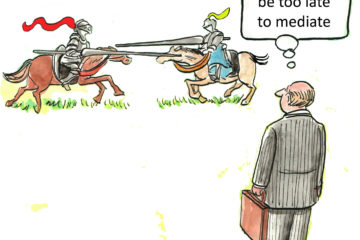Discover the importance of having a calm, rational influence during confrontations.
While out walking recently, my little dog was attacked by a dog that was much bigger and aggressive. It barked, and then rushed at him, and grabbed hold of the scruff of his neck. There was no serious damage to our little dog, but we didn’t know that yet.

I grabbed my phone to photograph the dog, the owner, and the car numberplate. I hoped the authorities could prevent someone getting seriously hurt by this dangerous dog off its leash in future.
The menacing dog-owner saw me and stormed over, threatening to punch me and break my phone. This whole experience was truly scary. My emotions were high, and without even thinking, I was mobilized for a full-on confrontation with the guy. I was mad and wanted payback.
Then what happened
In this state I barely registered that the owner was bigger and stronger than me, and one shove from him would have landed me on my backside. Fortunately, my partner was there too, viewing the whole situation from her own perspective, and fearing various unpleasant scenarios looming.
Picking up our little dog, and realising how traumatised he was, plus the potential for further escalation, she just said, “Come on John, let’s just go”. I realised that the best way to protect us all, was to leave, and we just got out of the whole situation, with the guy still yelling at us. But there was no fight.
I was reminded about this incident when a comment on one of my recent social media posts said:
“I’m not gonna let some mouthy customers disrespect me. I’m gonna go hard.“
That’s exactly what happened to me with my dog. I felt disrespected and I was ‘gonna go hard’. That is, until reason (my wife) prevailed.
Why not ‘go hard’?
When someone says things that are personally challenging, you feel disrespected. Your brain triggers your body to prepare for fight or flight – but it takes a bit longer before it knows whether it is fight or flight that will be most effective. The experience of seeing loved ones, or your identity, or integrity being attacked, may make you want to ‘go hard’ back at them. You are ready to fight.
Unfortunately, when you fight, you escalate. If you are bigger, stronger or have a louder voice then you might win. At least for now. But usually, there are no winners in a true fight, and ‘going hard’ is not a good option. When you are under physical threat then flight, or a calm withdrawal, is almost always a much better option.
What about customers who are ‘mouthy’?
From a business perspective, if customers are disrespectful, aggressive, wrong, and rude, it is still best to avoid fighting back. Otherwise, they take their money elsewhere, they tell others, and business drops. (Ram raids are a slightly different issue, but it is still true that trying to fight back will not solve anything).
Ideally, you want to keep customers coming back and speaking well of you. For this you need to stay present and engage with them, especially when they are upset. (Bonus: you can use these tips in family situations as well.)
First, recognise there’s high emotion, in them and you. Your amygdala, the part of your brain that focuses on your survival, doesn’t distinguish between a physical threat and a verbal threat. Your fight/flight response kicks in. The Amygdala hijacks your rational brain and it’s hard to think clearly. Acknowledge this to yourself.
Second, breathe deeply and slowly to calm yourself down. You want to get good oxygen to your rational brain. This will help activate the parasympathetic nervous system, which is the opposite of fight/flight.
Third, own your feelings. Your feelings belong to you. They may be uncomfortable, but they are still yours. Practise accepting them, without needing to act on them.
Fourth, remind yourself that this is not about you. The other person’s outburst is a sign of their distress. Something has gone wrong for them. For some reason, they are not functioning in a normal way, and unless you know them, you can’t know whether this is because of mental health issues, alcohol or other drug use, limited cognitive capacity or something else going on in their lives such as relationship issues.
This outburst is the only way they have in this moment of expressing their distress. It’s not usually about you personally, even if you made a mistake. It’s much more about them.
When possible, acknowledge what they are feeling, without judgement or criticism. You could say something like:
- This has been hard for you.
- It is disappointing that this has happened.
- You are under a lot of pressure.
- It seems like you have a lot going on right now and you don’t need this as well.
- I’m sorry I couldn’t get to you sooner; it has made it difficult for you.
Making these responses takes practise. You can practise scenarios in the comfort of your own mind, so that when you are confronted by a ‘mouthy customer’ you are ready to respond in a helpful way.
If you want more training in these skills, you can check out the TUF Online Interactive Training.

